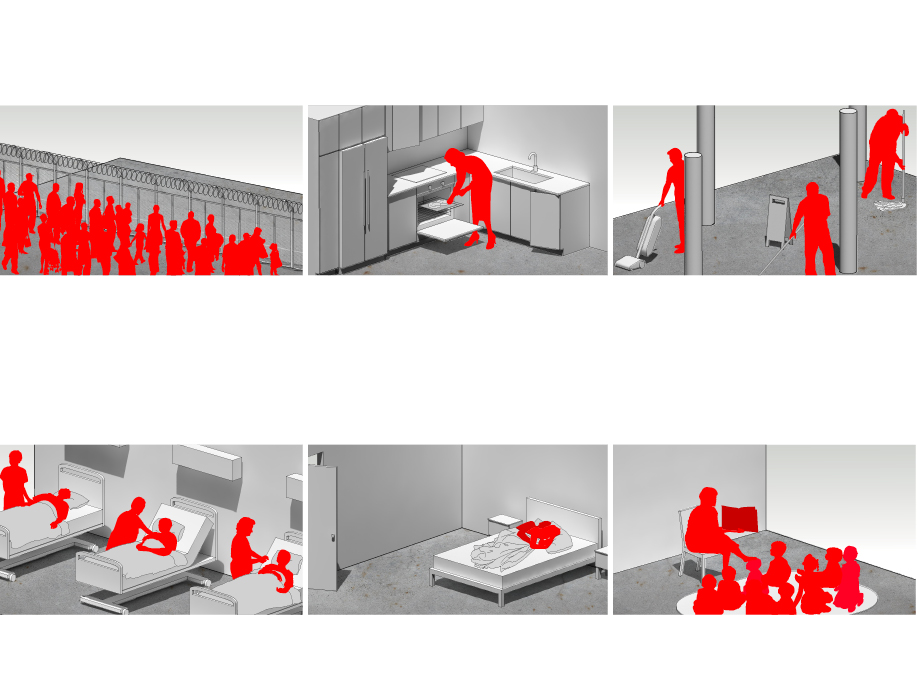Mikkel Bolt Rasmussen, Jacob Wamberg (eds.): Totalitarian Art and Modernity (2010)
Filed under book | Tags: · art history, avant-garde, capitalism, communism, democracy, fascism, labour, modernism, modernity, monument, mythology, nazism, politics, revolution, socialism, socialist realism, soviet union, technology, totalitarianism, war

“In spite of the steadily expanding concept of art in the Western world, art made in twentieth-century totalitarian regimes – notably Nazi Germany, fascist Italy and the communist East Bloc countries – is still to a surprising degree excluded from mainstream art history and the exhibits of art museums. In contrast to earlier art made to promote princely or ecclesiastical power, this kind of visual culture seems to somehow not fulfill the category of ‘true’ art, instead being marginalised as propaganda for politically suspect regimes.
Totalitarian Art and Modernity wants to modify this displacement, comparing totalitarian art with modernist and avant-garde movements; confronting their cultural and political embeddings; and writing forth their common generalogies. Its eleven articles include topics as varied as: the concept of totalitarianism and totalitarian art, totalitarian exhibitions, monuments and architecture, forerunners of totalitarian art in romanticism and heroic realism, and diverse receptions of totalitarian art in democratic cultures.”
With contributions by Mikkel Bolt, Sandra Esslinger, Jørn Guldberg, Paul Jaskot, Jacob Wamberg, Christina Kiaer, Anders V. Munch, Kristine Nielsen, Olaf Peters, K. Andrea Rusnock, and Marla Stone.
Publisher Aarhus University Press, Århus, 2010
Acta Jutlandica series, 9
ISBN 8779345603, 9788779345607
359 pages
via Mikkel Bolt
PDF (10 MB)
Comment (0)Trebor Scholz: Platform Cooperativism: Challenging the Corporate Sharing Economy (2016) [EN, DE]
Filed under brochure | Tags: · capitalism, collaboration, economics, internet, labour, platform cooperativism, sharing

“The “sharing economy” wasn’t supposed to be this way. Aided by the tiny computers most of us carry with us all day, every day, we would be free from the burdens of ownership and making money in our spare time by renting out our unused possessions. The vison was—or at least appeared to be—an idealistic one. Even before they enter kindergarten, every child learns the value of sharing, and here were the beneficent forces of Silicon Valley bringing us innovative new tools to strengthen our communities, disrupt outdated ways of doing business, and maybe even reduce our carbon footprints.
The reality turned out to be a little different. Sure, Uber and its ilk offer remarkable convenience and a nearly magical user experience, but their innovation lies just as much in evading regulations as in developing new technology. Behind the apps lies an army of contract workers without the protections offered to ordinary employees, much less the backing of a union. This new economy is not really about sharing at all. Rather, as Trebor Scholz argues in this study, it is an on-demand service economy that is spreading market relations deeper into our lives.
With these new middlemen sucking profits out of previously un-monetized interactions, creating new forms of hyper-exploitation, and spreading precarity throughout the workforce, what can we do? Scholz insists that we need not just resistance but a positive alternative. He calls this alternative “platform cooperativism,” which encompasses new ownership models for the Internet. Platform cooperativism insists that we’ll only be able to address the myriad ills of the sharing economy—that is to say platform capitalism—by changing ownership, establishing democratic governance, and reinvigorating solidarity. In this paper, Scholz breathes life into this idea by describing both actually existing and possible examples of platform co-ops, outlining basic principles for fairly operating labor platforms on the Internet, and suggesting next steps.”
Publisher Rosa Luxemburg Stiftung, New York Office, Jan 2016
27 pages
Platform Cooperativism (English, 2016, PDF, 6 MB)
Plattform-Kooperativismus (German, 2016, HTML, added on 2016-6-19)
Viewpoint Magazine, 5: Social Reproduction (2015)
Filed under magazine | Tags: · capitalism, labour, life, political economy, politics, production, society, work

“Today, amidst a changed political and class landscape, strategy should take precedence over fidelity to the received canon. The activities of social reproduction remain the field of powerful class antagonisms.”
The issue includes 30 articles.
Edited by Asad Haider and Salar Mohandesi
Published November 2015
Creative Commons BY-NC License

